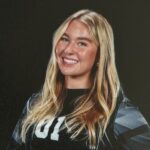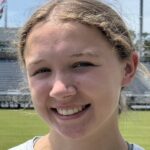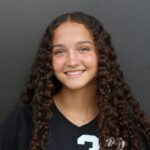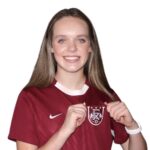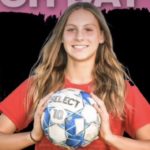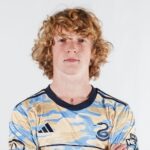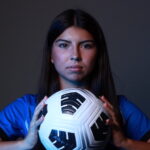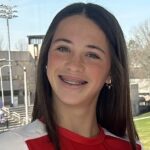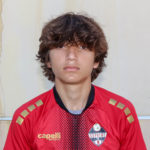SW Q&A: U.S. U-23 Men’s coach Caleb Porter ready for Olympic tests
By Charles Boehm
Frisco, Tx. – After building Akron University into an NCAA soccer powerhouse with five consecutive NCAA tournament appearances and a national championship in 2010, last October Caleb Porter was tasked with a new challenge: leading the United States’ Under-23 Men’s National Team to a berth – and success – in the 2012 Summer Olympic Games in London.
At the college level, Porter has proven to be a skillful motivator and recruiter whose Akron teams have sent a long list of top talents to the professional and international levels, while also displaying a fluid, possession-oriented style that has challenged long-held stereotypes about NCAA play. But a few skeptics still wonder whether the former Indiana University standout, whose own promising playing career was cut short by knee injuries, has the experience and authority needed to push the U.S. to elusive Olympic glory.
National Soccer Wire caught up with Porter on Monday after a training session at FC Dallas Stadium in suburban Dallas, where he and his staff have been preparing the U.S. U-23s for their challenging friendly match against Mexico on Wednesday night (10 p.m. ET, broadcast live on Telefutura) with an eye towards CONCACAF Olympic qualifying, which opens with a match against Cuba at LP Field in Nashville, Tenn. on March 22.
NSW: Where do things stand in your preparations for Olympic qualifying?
CP: Well, we have a much clearer picture of where we’re at, certainly, four camps in. That’s a big part of this process, figuring out what your group is. So we feel like we’re really getting close with regards to player personnel and the pool. We need to make decisions, so I’d like to be able to make decisions after this camp without having to bring in guys to make final decisions right before qualifying.
A lot of questions will be answered in the Mexico game, because you can see things in training and intra-squads and games against NASL teams [the U-23s scrimmaged the San Antonio Scorpions last week], but this is going to be a real game. So I think we’re really getting our final questions answered in that game, and feeling good. I think we’ve got a lot of good pieces and I feel like the chemistry’s coming, I feel like they’ve bought into the way we’re playing, from a system of play, style standpoint. Certainly they understand how we want to do things, our philosophy, and there’s a lot of good energy out there, good spirit in the group. So we’re excited to play Mexico Wednesday.
NSW: For lack of a better term, are you “married” to the 4-3-3 formation? Do the pieces work in that system?
CP: Yeah, I think definitely the pieces work. But I’m not married to any system, to be honest with you. At Akron I played mostly 4-4-2. A lot of people think I’m a 4-3-3 guy, and last year we played a 4-3-3. I do think if we’re going to be a possession team, that’s the best system to play because it has the natural triangles within the system, which allows you to circulate the ball easier. My philosophy is, you can’t win unless you have the ball – the more you have the ball, the better chance you have to win.
It depends a little bit on what type of game you want to play. Maybe in qualifying we want to be a little more direct, and have less of the ball, less rhythm and put a little bit more athletic team where we’re running all over. Perhaps we use our athleticism to our advantage. But I think we can also balance it out in a way where we have dynamic pieces that are dangerous, but also, we continue to control the ball and the game. That’s my philosophy – I think it’s the best way to win. I think it gives you the best chance to win.
NSW: How’s it going for you personally, in terms of both adapting to and influencing the culture of U.S. Soccer?
CP: Well, I’ve been a U-18 National Team coach for two and a half years, so I’ve been through training camps like this. I think that’s a big reason I was prepared. Even though it’s a different age, the way that you do training camp, the way you set up a schedule, playing internationally, I’ve been through all that.
I’ve actually worn the badge, believe it or not. I played for the national B team, a lot of people don’t realize that. So I have a little bit of that experience as a player as well. A lot of these guys have played in college, and a good number of them, I’ve coached, some I’ve coached against. To be honest, it hasn’t been a big transition. It’s been enjoyable, it’s been comfortable and it’s been a pretty easy transition.
NSW: Not to give too much credence to this idea, but there are those who have doubts about a college coach coaching pros. Do you think you have anything to prove on that level?
CP: A coach is a coach. The best coaches in this country came through college: Bruce Arena, Bob Bradley, Sigi Schmid all started as college coaches. People forget that. The great thing about being a college coach is, you really learn to be a real coach. You go through a process of developing philosophies to the game, and you grind it out, too: You learn the ropes and you’re on the field a ton.
For 12 years I’ve been a real coach. I retired at 25 and for 12 years I’ve been studying to be a coach. So I don’t think that that plays into it whatsoever. If you’re a coach, you’re a coach. Certainly you make adjustments depending on the level, but you look at some of the top managers in the world, they weren’t always professional players. In some ways, because I didn’t play as long as I would’ve liked, I’ve had more time to prepare to be a coach.

